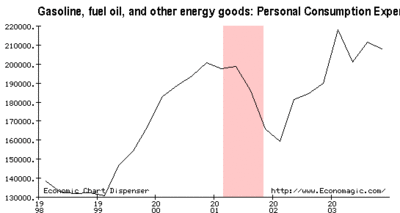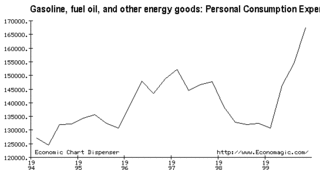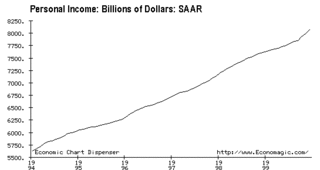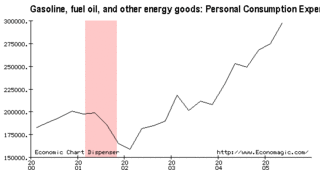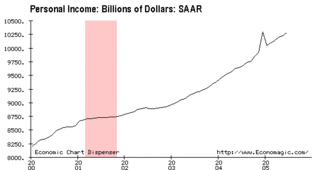OIL, CRUDE OIL
The rate of increase of total income of american population was such that in the last fifteen years personal income doubled, as shown below. The two pink stripes are the two recessions that happened in this period. They seem to have little relationship with the curve:
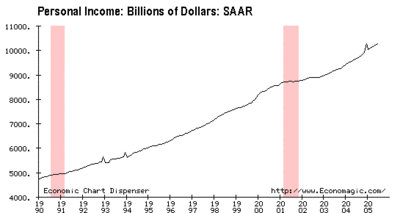
In the same period also personal expenditure for gasoline, fuel oil and other energy goods doubled, but this bill increased in a rather exponential shape and in a much more bumpy way than income, as shown below ($bn) :
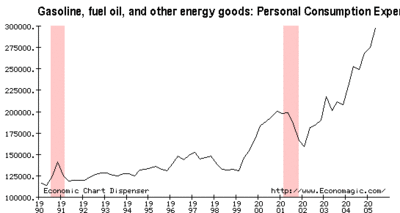
The two recessions appear in coincidence with particular behaviours of oil expenditure.
The first recession develops in '90 contemporarily to an "oil " expenditure spike, and lasts until its fall. The second one appears in '01 after a prolonged rise in oil expenditure and lasts until its fall.
DEEPENING THE INSIGHT
Let's expand income and expenditure curves in proximity of each recession.
For the first recession we can draw the curves of income and oil for the five years around the event:
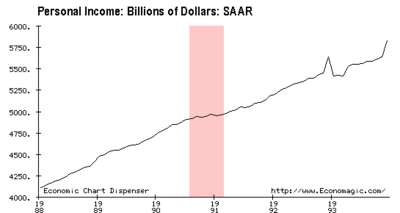
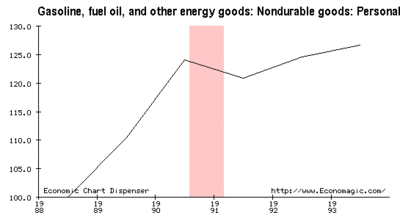
From these expanded curves we can see more more in detail what happened.
Using quarterly numerical data, we see that the recession came after an increase of more than 22% of oil expenditure in the preceeding two years . The corresponding increase of the income was only 15% .In other terms, when this recession started, it was more than a year that the rate of increase of oil expenditure was at least 1.4 times that of income.
Similar analysis can be performed on the curves of the '01 recession:
This recession happened after a surge in oil expenditure that lasted two years with an increase of 42% while corresponding increase of income was only 13%.
Notwithstanding the very different economical condition of 1990 and 2000, the observed relationship between income, oil expenditure and recession appear quite similar. Should this relationship be true in general, we could draw the conclusion that " a
POSSIBLE COUNTERPROOF
This "precursion" in the events studied appears early and evident in respect to actual recessions , but in our fifteen years of analysis the oil expenditure curve shows two other interesting events, the rather dull but long and spiky increase of '96-'98 and the sharp small spike of '03. No recession happend in both periods, so the precurring behaviour should not have been met.
If we apply our method to the first event:
we find that for '96-'98 oil expenditure peaked of 13% in '97 after a two years rise, while corresponding income had similar rise of 12%. The precursive condition for recession were not met.
Looking to the second event shown below, the spike of '03 appears embedded in a far more relevant and long lasting rise of oil expenditure.
The upside trend is so marked to upset the significance of the small spike, The dynamics is presently in progress, so no historical analisys can be performed. No recession has yet started, and this lag need to be investigated for possible factors to be taken in consideration.
A
AD INTERIM CONCLUSIONS
Cheap energy bill has historically been of the underlying characteristics of american economy. In recent times the relative amount of oil expenditure in respect to income was only 2-3% , but the response of the overall economy to its variations could be far higher than the absolute quantities involved. In certain periods the variations of " oil" expenditure, also if small in value, may seriously impact family economical stability , contributing to trigger a recession.....

